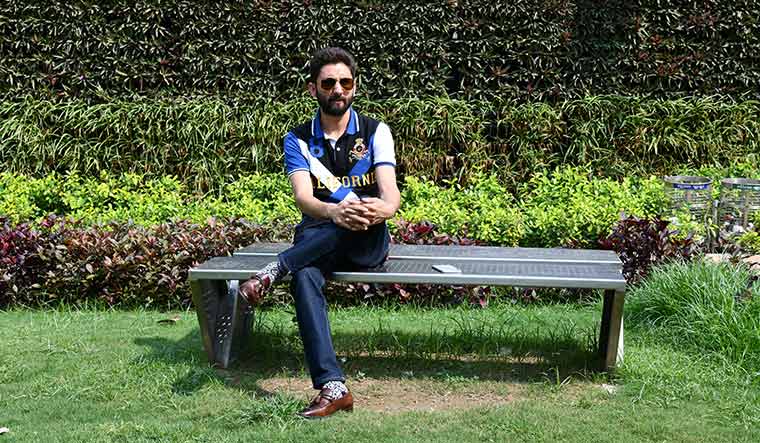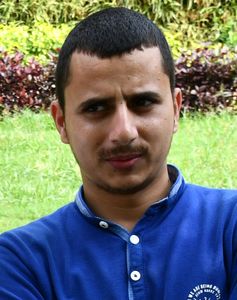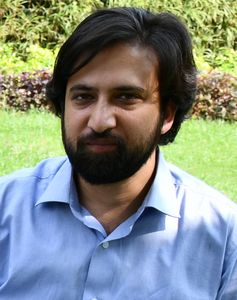ABID IMITAZ BHAT, national secretary of the All India Youth Congress, was one of the victims of the Narendra Modi government’s decision to void Article 370 and shut down the Kashmir valley to prevent any fallout. Bhat’s daughter had been suffering from vision problems and she needed a new pair of spectacles. But as shops were closed in the valley, Bhat had to travel to Delhi for the glasses.
“It was thoughtless to impose the shutdown before winter, when the valley would be shut for most activities,” said Bhat. The sudden shutdown caught Kashmiris by surprise as they were unable to stock up essential supplies for winter. Such unexpected shutdowns for one reason or the other have become the norm in the valley over the years, causing untold misery for ordinary people. It has hurt the credibility of established political parties like the National Conference, the Peoples Democratic Party, the Congress and the BJP, with people losing faith in them. This time, the abrogation of Article 370 has added to the general feeling of disaffection.
Bhat blamed politics for the instability in Kashmir. “Our people never had any problem with the armed forces. Guns came into Kashmir from outside, and those were directed not at the armed forces, but at politicians,” said Bhat. In his view, Kashmiris want a change in their politics, not a confrontation with the armed forces. Like Bhat, there are a number of young leaders who want a different future for Kashmir.
Mehraj Khurshid Malik left his lucrative job at Microsoft two years ago to enter politics. The 27-year-old computer engineer made his debut by taking on National Conference president Farooq Abdullah in the byelections to the Srinagar Lok Sabha constituency in 2017. Malik said he chose to fight against Farooq as he felt that political parties which ruled Jammu and Kashmir for the past 70 years did not do much about the aspirations of the people.
The election, however, was a tame affair with only 7 per cent of the 13 lakh registered voters turning up on the polling day. Farooq won with 48,555 votes, while Malik polled just 576 votes. “When you know that your opponent is bigger than you and has the resources and power to pull the votes, even 576 votes is an achievement,’’ said Malik. He said Jammu and Kashmir’s budget was bigger than that of any other Indian state. “Still, successive governments have failed to promote local expertise in areas such as handicrafts, food processing, wood carving and tourism.”
With the Centre abrogating Article 370 and shutting Kashmir down, leaders like Farooq are under house arrest. Ironically, it was Farooq’s father, Sheikh Abdullah, who had introduced the draconian Public Safety Act under which thousands of Kashmiris were detained over the years. “Now, if the same law is being used against Farooq or if Hurriyat leaders are being put behind bars for corruption, will local people have sympathy for them?” asked Malik.
Lawyer Mir Junaid is an up and coming leader who played a major role during last year’s local body elections. Junaid, the first elected president of the Kashmir University Students’ Union, fielded 2,774 candidates in the polls, of which 2,368 won. Independent candidates seem to be further extending their influence across Kashmir. In the block development council elections held on October 24, independents won 217 of 310 blocks. Local political parties and the Congress had boycotted the polls.
For young leaders like Junaid, local elections offer a platform, especially as the state is going through a major political crisis. Junaid, 28, plans to launch a political party to win over Kashmiris who feel alienated with the existing political system. He had recently met Union Home Minister Amit Shah with a team of village heads to share their concerns regarding the prevailing situation in the state. Shah offered them help to reach out to the people. Junaid has been travelling extensively to mobilise village heads to create a roadmap for people’s welfare and to resolve their daily problems. He listens to their angry responses to the government’s decision to withdraw Kashmir’s special status and to split the state into two Union territories. “We demand statehood for Kashmir, but we will do so peacefully, within the ambit of the Constitution,” said Junaid. “We have short-term and long-term goals like protecting the land rights of the local population and bringing back Kashmiri Pandits. I have decided to be a part of the solution rather than being part of the problem.”
He is also helping to gather, analyse and synthesise data under the supervision of the Union government to effectively formulate policies and interventions required to bring in good governance. His roadmap also includes roping in young, educated leaders like Malik and social activists Touseef Raina and Rumaisa Shabir to create a new line of leadership in Kashmir to replace the Abdullahs and the Muftis. “I have been working on the ground for the last 20 years,” said Junaid. “Based on people’s aspirations, I have made a roadmap for de-radicalisation, de-alienation, re-stabilisation and de-polarisation in the state through youth engagement in particular and re-integration of Jammu and Kashmir in general.’’
Raina, who heads an NGO called the Global Youth Foundation, said mainstream leaders had failed the Kashmiris, while the Central government could not move beyond appointing interlocutors. He said it was for the Kashmiris to decide their future. “As a youth leader, I would say that the people can give us a chance,” said Raina. Shabir, the 24-year-old political science student who wants to become an IAS officer, hopes to grow into a voice representing the women in the valley. “We can have clean politics,” said Shabir. “Today, the people of Kashmir do not know about their rights. They are not aware of what is good or bad for them so they are following whatever is told.” She said Mehbooba Mufti had lost credibility. “Mehbooba was given so many chances. I do not see her as my future leader.”
Anoop Kaul, who serves as coordinator of the Kashmiri Pandit Organisations Alliance, agreed with Shabir. He said Kashmir needed a credible leadership. “Kashmir was built by Kashmiri Pandits. But if they cannot return, then it is a failure of the entire system,” said Kaul. “We will continue to struggle for their peaceful return. There is a lot of resentment among people today and there is a definite space for new leaders and new political parties to work for the people of Kashmir.”
So far, local governments in Jammu and Kashmir have remained dysfunctional because of the lack of decentralisation of power and threat from militant groups. After the 2011 local body polls, militants targeted several village heads, leading to a spate of resignations. Such threats were issued this time, too, and panchs and sarpanchs were worried for their safety. But the successful conduct of the local body polls last year and the block development council elections on October 24 showed that it was possible for old and new aspirants to engage with the people and instil faith in them to build a new political environment in Kashmir.
Anil Sharma, president of the All Jammu and Kashmir Panchayat Conference, however, called for further decentralisation of power. The 73rd and 74th amendments to the Constitution are yet to be implemented,” said Sharma. “We need a three-tier system of democracy where an empowered panchayati raj system engages people at the grassroots level, which will then automatically make way for new leaders to emerge from the grassroots.’’





